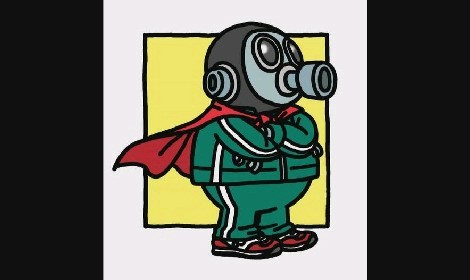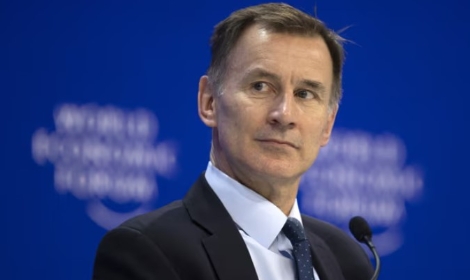研究发现,英国削减燃油税是一项有利于富人的倒退政策
正文翻译
UK fuel duty cut is regressive policy that benefits the wealthy, study finds
- Chancellor’s 5p freeze will save £60 a year for well-off motorists compared with just £22 for lower earners
研究发现,英国削减燃油税是一项有利于富人的倒退政策
——财政大臣冻结5便士的政策将为富裕驾车者每年节省60英镑,而低收入者每年只节省22英镑

(Critics of the fuel duty cut say it helps the rich who tend to own more vehicles while doing ‘little for the economy’.)
(对削减燃油税持批评态度的人士说,这有助于那些倾向于拥有更多汽车的富人,而对经济却“没有什么帮助”。)
新闻:
Retaining the fuel duty cut in the budget is a regressive policy that benefits the wealthiest in society, who will save £60 a year, while those who earn the least will save just £22, according to analysis.
分析显示,在预算中保留燃油税削减是一项退步政策,有利于社会上最富有的人,他们每年将节省60英镑,而收入最低的人只能节省22英镑。
Jeremy Hunt on Wednesday announced an extension of the 5p cut in fuel duty brought in during 2022, for which he has won plaudits across the rightwing press.
杰里米·亨特周三宣布,将延长2022年开始实施的5便士燃油税削减计划,他的这一决定赢得了右翼媒体的喝彩。
But the Social Market Foundation (SMF) thinktank found the freeze, expected to cost £5bn a year, is bad value for money and benefits the wealthiest in society who tend to own more cars, and drive less fuel-efficient vehicles such as SUVs.
但社会市场基金会智库发现,这项预计每年花费50亿英镑的冻结措施性价比低,有利于社会上最富有的人,他们往往拥有更多的汽车,并驾驶越野车等燃油效率较低的汽车。
Combined, the fuel duty freeze, which has been in place since it was introduced as a temporary measure in 2011, and the 5p cut to fuel duty, have cost the Treasury £100bn since 2011, according to the SMF analysis.
根据社会市场基金会的分析,自2011年作为一项临时措施推出以来,冻结燃油税一直存在,再加上燃油税下调5便士,自2011年以来,财政部已经损失了1000亿英镑。
The two tax cuts to fuel are expected to knock £27bn off Treasury coffers over five years. The Conservatives attacked Labour’s ditched £28bn green investment promise over the same period as ruinously expensive.
这两项针对燃油的减税措施预计将在5年内使英国国库减少270亿英镑。保守党抨击工党在同一时期抛弃的280亿英镑绿色投资承诺是“毁灭性的昂贵”。
Critics have said the fuel duty cut “helps the rich” while doing “little for the economy” as public transport worsens in quality.
批评人士表示,由于公共交通质量恶化,削减燃油税“帮助了富人”,但“对经济没有什么帮助”。
In total, the SMF found the bottom fifth of earners would receive just 10% of the savings, compared with the top fifth who would pocket 24%.
总的来说,社会市场基金会发现收入最低的五分之一的人只会得到这笔节省的10%,而收入最高的五分之一的人会得到24%。
Chris Todd, the director of the campaign group Transport Action Network, said: “We need to increase investment in public transport to help level up and give people better access to jobs, healthcare and recreation. Instead, we’re seeing services slashed to subsidise cuts in fuel duty. These cuts mostly help the rich and do little for the economy. Those in need suffer most from poorer services and the higher levels of pollution that will follow.”
“交通行动网络”活动组织的负责人克里斯·托德说:“我们需要增加对公共交通的投资,以帮助人们提升水平,让人们更好地获得工作、医疗和娱乐。但相反,我们看到服务被大幅削减,以补贴燃油税的削减。这些削减主要是帮助富人,对经济没有什么帮助。那些有需要的人最容易受到更差的服务和随之而来的更严重的污染的影响。”
Sarah McMonagle, the director of external affairs at Cycling UK, said: “Far too many of us are dependent on our car but that’s because the government has failed to invest long term in public transport, cycling and walking, to give more people affordable, safe and reliable alternatives to driving. The public needs integrated transport policies and long-term investment, not political rhetoric about standing up for drivers.”
英国自行车协会对外事务主管莎拉·麦克莫纳格尔说:“我们中有太多人依赖自己的汽车,但这是因为政府没有在公共交通、自行车和步行方面进行长期投资,没有给更多的人提供负担得起、安全可靠的替代驾车的选择。公众需要的是综合交通政策和长期投资,而不是维护司机利益的政治说辞。”
The SMF has suggested more equitable and green ways to cut motoring costs, which would be investing in public transport, that “provide cheaper alternatives to driving for those who want to switch and decreases congestion for those who don’t”.
社会市场基金会提出了更公平、更环保的方式来降低驾驶成本——对公共交通的投资,“为那些想要转换的人提供更便宜的选择,并为那些不想要的人减少拥堵”。
The analysis found that for every 10% increase in public transport speed relative to driving, the average household saved £435 a year on transport costs.
分析发现,相对于开车,公共交通速度每提高10%,平均每个家庭每年就能节省435英镑的交通成本。
Electric vehicle drivers spend almost half as much fuelling their car as the equivalent petrol or diesel model, and the SMF has calculated that if the initial price of an electric vehicle was the same, households would save an average of £900 annually. The thinktank suggests the government should instead spend the money used to cut fuel duty to build charge points and help lower-income households afford electric vehicles.
电动汽车司机的充电费用几乎是同等汽油或柴油车型的一半,社会市场基金会计算出,如果电动汽车的初始价格相同,家庭平均每年将节省900英镑。该智库建议,政府应该把削减燃油税的钱用于建设充电站,帮助低收入家庭买得起电动汽车。
Gideon Salutin, a senior researcher at the SMF, said: “Listening to the rhetoric around fuel duty, you would think freezes provide immediate relief for low-income households and working-class commuters. But those are the households that tend to drive less, own fewer cars and travel more efficiently.
社会市场基金会高级研究员吉迪恩·萨鲁丁表示:“听了有关燃油税的言论,你会认为燃油税冻结会立即缓解低收入家庭和工薪阶层通勤者的压力。但这些家庭往往开车更少,拥有的汽车更少,出行效率更高。
“By constraining fuel duty, the government is wasting billions of pounds every year while robbing low-income households of cheaper options like public transport and EVs. These could pull millions out of poverty, but instead we’re wasting billions on unjust cuts.”
“通过限制燃油税,政府每年浪费数十亿英镑,同时剥夺了低收入家庭更便宜的选择,比如公共交通和电动汽车。这能使数百万人摆脱贫困,但我们却在不公正的削减上浪费了数十亿美元。”
- Chancellor’s 5p freeze will save £60 a year for well-off motorists compared with just £22 for lower earners
研究发现,英国削减燃油税是一项有利于富人的倒退政策
——财政大臣冻结5便士的政策将为富裕驾车者每年节省60英镑,而低收入者每年只节省22英镑

(Critics of the fuel duty cut say it helps the rich who tend to own more vehicles while doing ‘little for the economy’.)
(对削减燃油税持批评态度的人士说,这有助于那些倾向于拥有更多汽车的富人,而对经济却“没有什么帮助”。)
新闻:
Retaining the fuel duty cut in the budget is a regressive policy that benefits the wealthiest in society, who will save £60 a year, while those who earn the least will save just £22, according to analysis.
分析显示,在预算中保留燃油税削减是一项退步政策,有利于社会上最富有的人,他们每年将节省60英镑,而收入最低的人只能节省22英镑。
Jeremy Hunt on Wednesday announced an extension of the 5p cut in fuel duty brought in during 2022, for which he has won plaudits across the rightwing press.
杰里米·亨特周三宣布,将延长2022年开始实施的5便士燃油税削减计划,他的这一决定赢得了右翼媒体的喝彩。
But the Social Market Foundation (SMF) thinktank found the freeze, expected to cost £5bn a year, is bad value for money and benefits the wealthiest in society who tend to own more cars, and drive less fuel-efficient vehicles such as SUVs.
但社会市场基金会智库发现,这项预计每年花费50亿英镑的冻结措施性价比低,有利于社会上最富有的人,他们往往拥有更多的汽车,并驾驶越野车等燃油效率较低的汽车。
Combined, the fuel duty freeze, which has been in place since it was introduced as a temporary measure in 2011, and the 5p cut to fuel duty, have cost the Treasury £100bn since 2011, according to the SMF analysis.
根据社会市场基金会的分析,自2011年作为一项临时措施推出以来,冻结燃油税一直存在,再加上燃油税下调5便士,自2011年以来,财政部已经损失了1000亿英镑。
The two tax cuts to fuel are expected to knock £27bn off Treasury coffers over five years. The Conservatives attacked Labour’s ditched £28bn green investment promise over the same period as ruinously expensive.
这两项针对燃油的减税措施预计将在5年内使英国国库减少270亿英镑。保守党抨击工党在同一时期抛弃的280亿英镑绿色投资承诺是“毁灭性的昂贵”。
Critics have said the fuel duty cut “helps the rich” while doing “little for the economy” as public transport worsens in quality.
批评人士表示,由于公共交通质量恶化,削减燃油税“帮助了富人”,但“对经济没有什么帮助”。
In total, the SMF found the bottom fifth of earners would receive just 10% of the savings, compared with the top fifth who would pocket 24%.
总的来说,社会市场基金会发现收入最低的五分之一的人只会得到这笔节省的10%,而收入最高的五分之一的人会得到24%。
Chris Todd, the director of the campaign group Transport Action Network, said: “We need to increase investment in public transport to help level up and give people better access to jobs, healthcare and recreation. Instead, we’re seeing services slashed to subsidise cuts in fuel duty. These cuts mostly help the rich and do little for the economy. Those in need suffer most from poorer services and the higher levels of pollution that will follow.”
“交通行动网络”活动组织的负责人克里斯·托德说:“我们需要增加对公共交通的投资,以帮助人们提升水平,让人们更好地获得工作、医疗和娱乐。但相反,我们看到服务被大幅削减,以补贴燃油税的削减。这些削减主要是帮助富人,对经济没有什么帮助。那些有需要的人最容易受到更差的服务和随之而来的更严重的污染的影响。”
Sarah McMonagle, the director of external affairs at Cycling UK, said: “Far too many of us are dependent on our car but that’s because the government has failed to invest long term in public transport, cycling and walking, to give more people affordable, safe and reliable alternatives to driving. The public needs integrated transport policies and long-term investment, not political rhetoric about standing up for drivers.”
英国自行车协会对外事务主管莎拉·麦克莫纳格尔说:“我们中有太多人依赖自己的汽车,但这是因为政府没有在公共交通、自行车和步行方面进行长期投资,没有给更多的人提供负担得起、安全可靠的替代驾车的选择。公众需要的是综合交通政策和长期投资,而不是维护司机利益的政治说辞。”
The SMF has suggested more equitable and green ways to cut motoring costs, which would be investing in public transport, that “provide cheaper alternatives to driving for those who want to switch and decreases congestion for those who don’t”.
社会市场基金会提出了更公平、更环保的方式来降低驾驶成本——对公共交通的投资,“为那些想要转换的人提供更便宜的选择,并为那些不想要的人减少拥堵”。
The analysis found that for every 10% increase in public transport speed relative to driving, the average household saved £435 a year on transport costs.
分析发现,相对于开车,公共交通速度每提高10%,平均每个家庭每年就能节省435英镑的交通成本。
Electric vehicle drivers spend almost half as much fuelling their car as the equivalent petrol or diesel model, and the SMF has calculated that if the initial price of an electric vehicle was the same, households would save an average of £900 annually. The thinktank suggests the government should instead spend the money used to cut fuel duty to build charge points and help lower-income households afford electric vehicles.
电动汽车司机的充电费用几乎是同等汽油或柴油车型的一半,社会市场基金会计算出,如果电动汽车的初始价格相同,家庭平均每年将节省900英镑。该智库建议,政府应该把削减燃油税的钱用于建设充电站,帮助低收入家庭买得起电动汽车。
Gideon Salutin, a senior researcher at the SMF, said: “Listening to the rhetoric around fuel duty, you would think freezes provide immediate relief for low-income households and working-class commuters. But those are the households that tend to drive less, own fewer cars and travel more efficiently.
社会市场基金会高级研究员吉迪恩·萨鲁丁表示:“听了有关燃油税的言论,你会认为燃油税冻结会立即缓解低收入家庭和工薪阶层通勤者的压力。但这些家庭往往开车更少,拥有的汽车更少,出行效率更高。
“By constraining fuel duty, the government is wasting billions of pounds every year while robbing low-income households of cheaper options like public transport and EVs. These could pull millions out of poverty, but instead we’re wasting billions on unjust cuts.”
“通过限制燃油税,政府每年浪费数十亿英镑,同时剥夺了低收入家庭更便宜的选择,比如公共交通和电动汽车。这能使数百万人摆脱贫困,但我们却在不公正的削减上浪费了数十亿美元。”
评论翻译
newnortherner21
It's not just the fuel duty cut in a way. Eleven years of no fuel duty increase, whereas bus and rail fares go up every year. No fuel duty for aviation, and those on low incomes take fewer flights I expect.
在某种程度上,这不仅仅是燃油税的削减。11年来燃油税没有增加,而公共汽车和铁路票价却每年都在上涨。航空不征收燃油税,我预计低收入人群乘坐的航班会更少。
Lanky_Giraffe
It's absolutely wild that because a handful of wealthy bankers ride expensive road bikes from Richmond to their office in the City, they've managed to convince the public that owning and operating a car is for the working man, and cycling is for the elites.
In spite of an insane abundance of evidence to the contrary.
少数富有的银行家骑着昂贵的公路自行车从里士满到他们在伦敦金融城的办公室,他们成功地让公众相信拥有和驾驶汽车是工人的事,而骑自行车才是精英的事,这绝对是疯狂的。
尽管有大量的证据表明事实并非如此。
Cast_Me-Aside-8.00
I used to live in Peterborough and cycled everywhere. It was awesome -- and obviously -- great for my health and wellbeing.
However, not everywhere is particularly flat and cycling infrastructure is generally abysmal.
我以前住在彼得伯勒,到处骑自行车。这太棒了——显然——对我的健康和幸福很有好处。
然而,并不是所有地方都特别平坦,自行车基础设施普遍糟糕透顶。
tzimeworm
I have absolutely no doubt that if they were raising fuel duty the Guardian would have an article about how already strained nurses who have had real term pay cuts and who need to drive to work to look after our sick and needy can't afford to spend more on fuel and the this just further proves the Tories don't care about the poor
我毫不怀疑,如果他们提高燃油税,《卫报》就会有一篇文章,说那些已经很紧张的护士们,她们的工资已经被削减了,她们需要开车去上班照顾我们的病人和需要帮助的人,她们负担不起更多的燃油费,这进一步证明了保守党不关心穷人
mal221
This new methodology of who gets the most of the entire tax rebate is absolutely ridiculous. This is not what is meant by a regressive tax. Rich people are going to get more of a monetary bonus on any tax cut. They pay more tax. This article is absolute nonsense. If someone hands you 10 pound and hands your friend 20 pounds, you don't say "Well no one should get any money then." It's such an insane way of thinking about taxation.
这种关于谁从全部退税中获得最多的新算法绝对是荒谬的。这不是累退税的含义。富人将从任何减税中获得更多的金钱奖励。因为他们缴纳更多的税。这篇文章完全是在扯淡。如果有人给你10英镑,给你的朋友20英镑,你不会说“那么任何人都不应该得到任何钱。”这是一种非常疯狂的税收思考方式。
Taxington
A regressive tax cut is generaly done by cutting tax on things rich people buy more of.
A simplified example would be if we cut the duty on fine wine by 2% but standard beer by only 1%. In your example your pint would stay the same price but your freinds wine would go down more than your beer even though he is wealthier.
Petrol and diesel are things rich people spend a more heavily on than poorer people.
A more neutral tax cut would be something universal like VAT or national insurance. Things everyone contends with.
A progresive cut would be to cut things that disproportionately affect poorer people like food prices or bus fare.
递减减税通常是通过对富人购买更多的商品减税来实现的。
一个简单的例子是,如果我们将优质葡萄酒的关税降低2%,而标准啤酒的关税仅降低1%。在你的例子中,你的一品脱啤酒的价格会保持不变,但你朋友的葡萄酒的价格会比你的啤酒下跌得更多,即使他更富有。
汽油和柴油是富人比穷人花费更多的东西。
更为中性的减税应该是像增值税或国民保险这样的普遍减税。也就是每个人都在争论的事情。
而累进削减是削减那些会不成比例地影响穷人的东西,比如食品价格或公共汽车票价。
je97
Poorer people do however consume a greater proportion of their incomes than richer people, they keep much less of it saved away for example. Cutting fuel duty is good at reducing the cost of the consumable goods that everybody needs. It's a good idea for everybody imho, besides the green lobby of course.
然而,穷人的消费占收入的比例确实比富人高,比如,他们储蓄的收入要少得多。削减燃油税有助于降低每个人都需要的消费品的成本。这对每个人来说都是一个好主意,当然,除了绿色游说。
eairy
Whenever the subject of income tax banding comes up, we are told that higher earners ought to pay higher rates because the extra money has less value to a higher earner compared to a lower earner.
We can apply that principle here. Petrol and diesel are essential for a lot of lower paid people and while the cut might be numerically larger for a higher earner, the value is much greater for the lower paid.
每当所得税分级的话题出现时,我们都被告知,高收入者应该支付更高的税率,因为与低收入者相比,额外的钱对高收入者的价值更小。
我们可以在这里应用这个原则。汽油和柴油对许多低收入人群来说是必不可少的,虽然对高收入者的削减幅度可能更大,但对低收入者的价值要大得多。
Taxington
The problem in the case of Fuel duty cuts is the poorest don't benift at all, the poorest spend zero on petrol.
Though yeah you have a point, the biggest winners in value are probably middle income rural people who rely on their car.
燃油税削减的问题在于最穷的人根本没有受益,最穷的人一分钱也不会花在汽油上。
虽然你说得有道理,但价值上最大的赢家可能是依赖汽车的中等收入农村人口。
ITMidgetfully
The wealthy have Tesla’s and Taycans.
It’s the poor who have older less efficient cars and they will be hit by a fuel duty increase.
Especially as they double tax fuel (you pay vat on the fuel duty)
富人有特斯拉和Taycan。(译注:电动车)
穷人的车老旧,效率低,他们将受到燃油税增加的打击。
特别是他们对燃料征收双重税(你要在燃油税上支付增值税)
EeveesGalore
Lots of the wealthy are also buying massive BMW X5s, Range Rovers, Audi Q7s and the like, and there's no reason for it other than it's what they're used to. Better to discourage the sales of these as whatever is sold new eventually becomes the second hand cars that less wealthy people buy.
Old smaller cars are not much less efficient than newer ones in the same class and are definitely more efficient than newer big cars.
许多富人也在购买大量的宝马X5、路虎揽胜、奥迪Q7等车,没有别的原因,就是他们习惯开这些。最好是阻止这些汽车的销售,因为不管卖的是什么新车,最终都会变成不那么富有的人买的二手车。
旧的小型汽车并不比同级别的新汽车效率低多少,而且肯定比新的大型汽车效率更高。
Prestigious_Risk7610
I really dislike the regressive/progressive terminology. It purely exists to shape the readers opinions.
When people use progressive and regressive they are really making an argument dressed up in the emotive language of progressivism.
我真的不喜欢这种倒退/进步的术语。它的存在纯粹是为了塑造读者的观点。
当人们使用进步和倒退时,他们实际上是在用进步主义的感性语言来进行争论。
tmstms
I think this is a bit of a non-argument.
There are LOTS of things where if you spend more, you save more. Almost all supermarket and retailer reward schemes work like, and so do, say, savings accounts.
Almost all taxes on consumption will likewise benefit you if you spend more.
But saving £22 a year (the article's figures) if you are poor matters FAR more than saving £60 or even £600 a year if you are rich.
The writer's not poor, methinks.
我认为这是没有争议的。
在很多事情上,如果你花得多,你就省得多。几乎所有超市和零售商的减税计划都像,打个比方,像储蓄账户一样运作。
如果你花得更多,几乎所有的消费税都会对你有利。
但是,如果你是穷人,每年节省22英镑(文章里的数据)比如果你是富人,每年节省60英镑甚至600英镑要重要得多。
我想这位作者并不穷。
Lanky_Giraffe
The point is that there's a received wisdom that rich actually consume less fuel than the poor (because of WFH, electric vehicles, shorter commutes, better access to transit, office jobs that come with showers, etc).
It's completely untrue.
问题的关键是,有一种公认的观点认为,富人实际上比穷人消耗更少的燃料(因为在家办公、电动汽车、更短的通勤时间、更好的交通工具、带淋浴的办公室工作等等)。
完全不是这么回事。
Tmstms
Yes, again, I think people are arguing about two different things and one matters more to the rich and one matters more to the poor.
The rich likely consume more fuel because they can. If they want to go somewhere, they will never think Can I afford the petrol? So their conception of leisure might be geographically more wide-ranging than that of the poor (just as they will fly more, go on more foreign holidays etc). So in those arithmetical terms, the rich benefit more from cheaper fuel than the poor.
But at the level of the essential journey, paying 5p per litre for that benefits the poor more.
是的,我认为人们在争论两件不同的事情,一件对富人更重要,另一件对穷人更重要。
富人可能会消耗更多的燃料,因为他们有这个能力。如果他们想去某个地方,他们永远不会考虑我能负担得起汽油吗?因此,他们的休闲概念在地理上可能比穷人的更广泛(就像他们会更多地坐飞机,更多地去国外度假等等)。所以在这些算术术语中,富人比穷人从更便宜的燃料中获益了更多。
但在必要旅程的层面上,为每升汽油少支付5便士对穷人更有利。
Puzzleheaded_Oil1745
Good, the taxes are already utterly outrageous already against mid to high earners.
很好,针对中高收入者的税收已经非常离谱了。
AoyagiAichou
Honestly, is there any tax or tax-adjacent policy in the UK that doesn't benefit the wealthy?
老实说,英国有什么税收或税收相关政策对富人不利吗?
Fearless-Director210
The article is a joke. Of course richer people tend to have larger and more expensive cars that use more fuel but it should be worded to say 'people who use more fuel will save more than those who use less fuel'.
You can literally apply that logic to any good or service where a percentage based cut/sale is introduced but that doesn't mean its 'for the rich'.
The bigger problem here is that as a country we are much more skint than we accept as a population and we do not need or want to see any more cuts to public services. So why introduce a freeze that on average will only help a lower earner to the tune of £22 quid a year and a higher earner £77 or whatever it is.
They'd do better to just say we aren't freezing fuel duty because we don't think the savings to each member of the population are worth it and we are going to use the £27BILLION to pay for x, y and z.
People don't like paying taxes obviously and a lot of people are pretty ignorant but i genuinely believe if you can tell and show people 'yes we charged you this, but it pays for this and this' than we are much more accepting and even agreeable to it.
Stick my council tax up and i don't notice anything different in the community - Unhappy. Build new social housing, schools and drs. then fine i'm happy to pay
这篇文章就是个笑话。当然,富人往往拥有更大、更昂贵的汽车,这些汽车使用更多的燃料,但应该这样说:“使用更多燃料的人将比使用更少燃料的人节省更多的钱”。
你可以将这种逻辑应用到任何商品或服务中,其中引入了基于百分比的削减/销售,但这并不意味着它是“为富人服务的”。
这里更大的问题在于,作为一个国家,我们比我们所接受的要穷得多,我们不需要也不希望看到更多的公共服务削减。那么,为什么要实行平均每年只能帮助低收入者节省22英镑、高收入者节省77英镑或其他多少英镑的冻结政策呢?
他们最好说我们没有冻结燃油税,因为我们认为节省下来的钱对每个人来说都不值得,我们将用这个270亿英镑来支付X、Y和Z。
人们显然不喜欢纳税,很多人都很无知,但我真的相信,如果你能告诉人们“是的,我们收了你这个钱,但它用来支付了这个和那个”,我们就会更接受甚至更赞同它。
提高我的市政税,但我没有注意到社区有什么变化——我会不高兴。建造新的社会住房、学校和医生。那好吧,我很乐意交钱
It's not just the fuel duty cut in a way. Eleven years of no fuel duty increase, whereas bus and rail fares go up every year. No fuel duty for aviation, and those on low incomes take fewer flights I expect.
在某种程度上,这不仅仅是燃油税的削减。11年来燃油税没有增加,而公共汽车和铁路票价却每年都在上涨。航空不征收燃油税,我预计低收入人群乘坐的航班会更少。
Lanky_Giraffe
It's absolutely wild that because a handful of wealthy bankers ride expensive road bikes from Richmond to their office in the City, they've managed to convince the public that owning and operating a car is for the working man, and cycling is for the elites.
In spite of an insane abundance of evidence to the contrary.
少数富有的银行家骑着昂贵的公路自行车从里士满到他们在伦敦金融城的办公室,他们成功地让公众相信拥有和驾驶汽车是工人的事,而骑自行车才是精英的事,这绝对是疯狂的。
尽管有大量的证据表明事实并非如此。
Cast_Me-Aside-8.00
I used to live in Peterborough and cycled everywhere. It was awesome -- and obviously -- great for my health and wellbeing.
However, not everywhere is particularly flat and cycling infrastructure is generally abysmal.
我以前住在彼得伯勒,到处骑自行车。这太棒了——显然——对我的健康和幸福很有好处。
然而,并不是所有地方都特别平坦,自行车基础设施普遍糟糕透顶。
tzimeworm
I have absolutely no doubt that if they were raising fuel duty the Guardian would have an article about how already strained nurses who have had real term pay cuts and who need to drive to work to look after our sick and needy can't afford to spend more on fuel and the this just further proves the Tories don't care about the poor
我毫不怀疑,如果他们提高燃油税,《卫报》就会有一篇文章,说那些已经很紧张的护士们,她们的工资已经被削减了,她们需要开车去上班照顾我们的病人和需要帮助的人,她们负担不起更多的燃油费,这进一步证明了保守党不关心穷人
mal221
This new methodology of who gets the most of the entire tax rebate is absolutely ridiculous. This is not what is meant by a regressive tax. Rich people are going to get more of a monetary bonus on any tax cut. They pay more tax. This article is absolute nonsense. If someone hands you 10 pound and hands your friend 20 pounds, you don't say "Well no one should get any money then." It's such an insane way of thinking about taxation.
这种关于谁从全部退税中获得最多的新算法绝对是荒谬的。这不是累退税的含义。富人将从任何减税中获得更多的金钱奖励。因为他们缴纳更多的税。这篇文章完全是在扯淡。如果有人给你10英镑,给你的朋友20英镑,你不会说“那么任何人都不应该得到任何钱。”这是一种非常疯狂的税收思考方式。
Taxington
A regressive tax cut is generaly done by cutting tax on things rich people buy more of.
A simplified example would be if we cut the duty on fine wine by 2% but standard beer by only 1%. In your example your pint would stay the same price but your freinds wine would go down more than your beer even though he is wealthier.
Petrol and diesel are things rich people spend a more heavily on than poorer people.
A more neutral tax cut would be something universal like VAT or national insurance. Things everyone contends with.
A progresive cut would be to cut things that disproportionately affect poorer people like food prices or bus fare.
递减减税通常是通过对富人购买更多的商品减税来实现的。
一个简单的例子是,如果我们将优质葡萄酒的关税降低2%,而标准啤酒的关税仅降低1%。在你的例子中,你的一品脱啤酒的价格会保持不变,但你朋友的葡萄酒的价格会比你的啤酒下跌得更多,即使他更富有。
汽油和柴油是富人比穷人花费更多的东西。
更为中性的减税应该是像增值税或国民保险这样的普遍减税。也就是每个人都在争论的事情。
而累进削减是削减那些会不成比例地影响穷人的东西,比如食品价格或公共汽车票价。
je97
Poorer people do however consume a greater proportion of their incomes than richer people, they keep much less of it saved away for example. Cutting fuel duty is good at reducing the cost of the consumable goods that everybody needs. It's a good idea for everybody imho, besides the green lobby of course.
然而,穷人的消费占收入的比例确实比富人高,比如,他们储蓄的收入要少得多。削减燃油税有助于降低每个人都需要的消费品的成本。这对每个人来说都是一个好主意,当然,除了绿色游说。
eairy
Whenever the subject of income tax banding comes up, we are told that higher earners ought to pay higher rates because the extra money has less value to a higher earner compared to a lower earner.
We can apply that principle here. Petrol and diesel are essential for a lot of lower paid people and while the cut might be numerically larger for a higher earner, the value is much greater for the lower paid.
每当所得税分级的话题出现时,我们都被告知,高收入者应该支付更高的税率,因为与低收入者相比,额外的钱对高收入者的价值更小。
我们可以在这里应用这个原则。汽油和柴油对许多低收入人群来说是必不可少的,虽然对高收入者的削减幅度可能更大,但对低收入者的价值要大得多。
Taxington
The problem in the case of Fuel duty cuts is the poorest don't benift at all, the poorest spend zero on petrol.
Though yeah you have a point, the biggest winners in value are probably middle income rural people who rely on their car.
燃油税削减的问题在于最穷的人根本没有受益,最穷的人一分钱也不会花在汽油上。
虽然你说得有道理,但价值上最大的赢家可能是依赖汽车的中等收入农村人口。
ITMidgetfully
The wealthy have Tesla’s and Taycans.
It’s the poor who have older less efficient cars and they will be hit by a fuel duty increase.
Especially as they double tax fuel (you pay vat on the fuel duty)
富人有特斯拉和Taycan。(译注:电动车)
穷人的车老旧,效率低,他们将受到燃油税增加的打击。
特别是他们对燃料征收双重税(你要在燃油税上支付增值税)
EeveesGalore
Lots of the wealthy are also buying massive BMW X5s, Range Rovers, Audi Q7s and the like, and there's no reason for it other than it's what they're used to. Better to discourage the sales of these as whatever is sold new eventually becomes the second hand cars that less wealthy people buy.
Old smaller cars are not much less efficient than newer ones in the same class and are definitely more efficient than newer big cars.
许多富人也在购买大量的宝马X5、路虎揽胜、奥迪Q7等车,没有别的原因,就是他们习惯开这些。最好是阻止这些汽车的销售,因为不管卖的是什么新车,最终都会变成不那么富有的人买的二手车。
旧的小型汽车并不比同级别的新汽车效率低多少,而且肯定比新的大型汽车效率更高。
Prestigious_Risk7610
I really dislike the regressive/progressive terminology. It purely exists to shape the readers opinions.
When people use progressive and regressive they are really making an argument dressed up in the emotive language of progressivism.
我真的不喜欢这种倒退/进步的术语。它的存在纯粹是为了塑造读者的观点。
当人们使用进步和倒退时,他们实际上是在用进步主义的感性语言来进行争论。
tmstms
I think this is a bit of a non-argument.
There are LOTS of things where if you spend more, you save more. Almost all supermarket and retailer reward schemes work like, and so do, say, savings accounts.
Almost all taxes on consumption will likewise benefit you if you spend more.
But saving £22 a year (the article's figures) if you are poor matters FAR more than saving £60 or even £600 a year if you are rich.
The writer's not poor, methinks.
我认为这是没有争议的。
在很多事情上,如果你花得多,你就省得多。几乎所有超市和零售商的减税计划都像,打个比方,像储蓄账户一样运作。
如果你花得更多,几乎所有的消费税都会对你有利。
但是,如果你是穷人,每年节省22英镑(文章里的数据)比如果你是富人,每年节省60英镑甚至600英镑要重要得多。
我想这位作者并不穷。
Lanky_Giraffe
The point is that there's a received wisdom that rich actually consume less fuel than the poor (because of WFH, electric vehicles, shorter commutes, better access to transit, office jobs that come with showers, etc).
It's completely untrue.
问题的关键是,有一种公认的观点认为,富人实际上比穷人消耗更少的燃料(因为在家办公、电动汽车、更短的通勤时间、更好的交通工具、带淋浴的办公室工作等等)。
完全不是这么回事。
Tmstms
Yes, again, I think people are arguing about two different things and one matters more to the rich and one matters more to the poor.
The rich likely consume more fuel because they can. If they want to go somewhere, they will never think Can I afford the petrol? So their conception of leisure might be geographically more wide-ranging than that of the poor (just as they will fly more, go on more foreign holidays etc). So in those arithmetical terms, the rich benefit more from cheaper fuel than the poor.
But at the level of the essential journey, paying 5p per litre for that benefits the poor more.
是的,我认为人们在争论两件不同的事情,一件对富人更重要,另一件对穷人更重要。
富人可能会消耗更多的燃料,因为他们有这个能力。如果他们想去某个地方,他们永远不会考虑我能负担得起汽油吗?因此,他们的休闲概念在地理上可能比穷人的更广泛(就像他们会更多地坐飞机,更多地去国外度假等等)。所以在这些算术术语中,富人比穷人从更便宜的燃料中获益了更多。
但在必要旅程的层面上,为每升汽油少支付5便士对穷人更有利。
Puzzleheaded_Oil1745
Good, the taxes are already utterly outrageous already against mid to high earners.
很好,针对中高收入者的税收已经非常离谱了。
AoyagiAichou
Honestly, is there any tax or tax-adjacent policy in the UK that doesn't benefit the wealthy?
老实说,英国有什么税收或税收相关政策对富人不利吗?
Fearless-Director210
The article is a joke. Of course richer people tend to have larger and more expensive cars that use more fuel but it should be worded to say 'people who use more fuel will save more than those who use less fuel'.
You can literally apply that logic to any good or service where a percentage based cut/sale is introduced but that doesn't mean its 'for the rich'.
The bigger problem here is that as a country we are much more skint than we accept as a population and we do not need or want to see any more cuts to public services. So why introduce a freeze that on average will only help a lower earner to the tune of £22 quid a year and a higher earner £77 or whatever it is.
They'd do better to just say we aren't freezing fuel duty because we don't think the savings to each member of the population are worth it and we are going to use the £27BILLION to pay for x, y and z.
People don't like paying taxes obviously and a lot of people are pretty ignorant but i genuinely believe if you can tell and show people 'yes we charged you this, but it pays for this and this' than we are much more accepting and even agreeable to it.
Stick my council tax up and i don't notice anything different in the community - Unhappy. Build new social housing, schools and drs. then fine i'm happy to pay
这篇文章就是个笑话。当然,富人往往拥有更大、更昂贵的汽车,这些汽车使用更多的燃料,但应该这样说:“使用更多燃料的人将比使用更少燃料的人节省更多的钱”。
你可以将这种逻辑应用到任何商品或服务中,其中引入了基于百分比的削减/销售,但这并不意味着它是“为富人服务的”。
这里更大的问题在于,作为一个国家,我们比我们所接受的要穷得多,我们不需要也不希望看到更多的公共服务削减。那么,为什么要实行平均每年只能帮助低收入者节省22英镑、高收入者节省77英镑或其他多少英镑的冻结政策呢?
他们最好说我们没有冻结燃油税,因为我们认为节省下来的钱对每个人来说都不值得,我们将用这个270亿英镑来支付X、Y和Z。
人们显然不喜欢纳税,很多人都很无知,但我真的相信,如果你能告诉人们“是的,我们收了你这个钱,但它用来支付了这个和那个”,我们就会更接受甚至更赞同它。
提高我的市政税,但我没有注意到社区有什么变化——我会不高兴。建造新的社会住房、学校和医生。那好吧,我很乐意交钱










